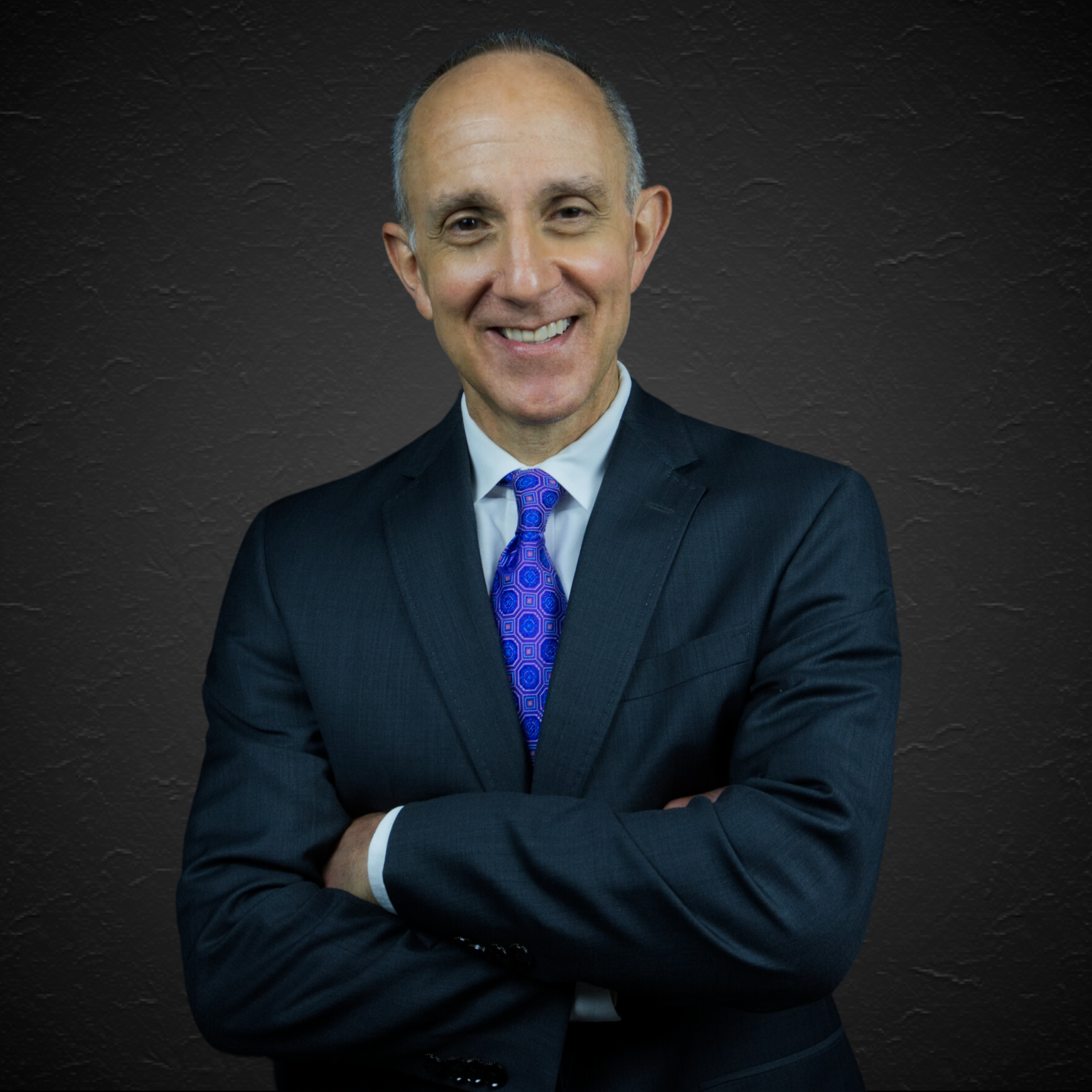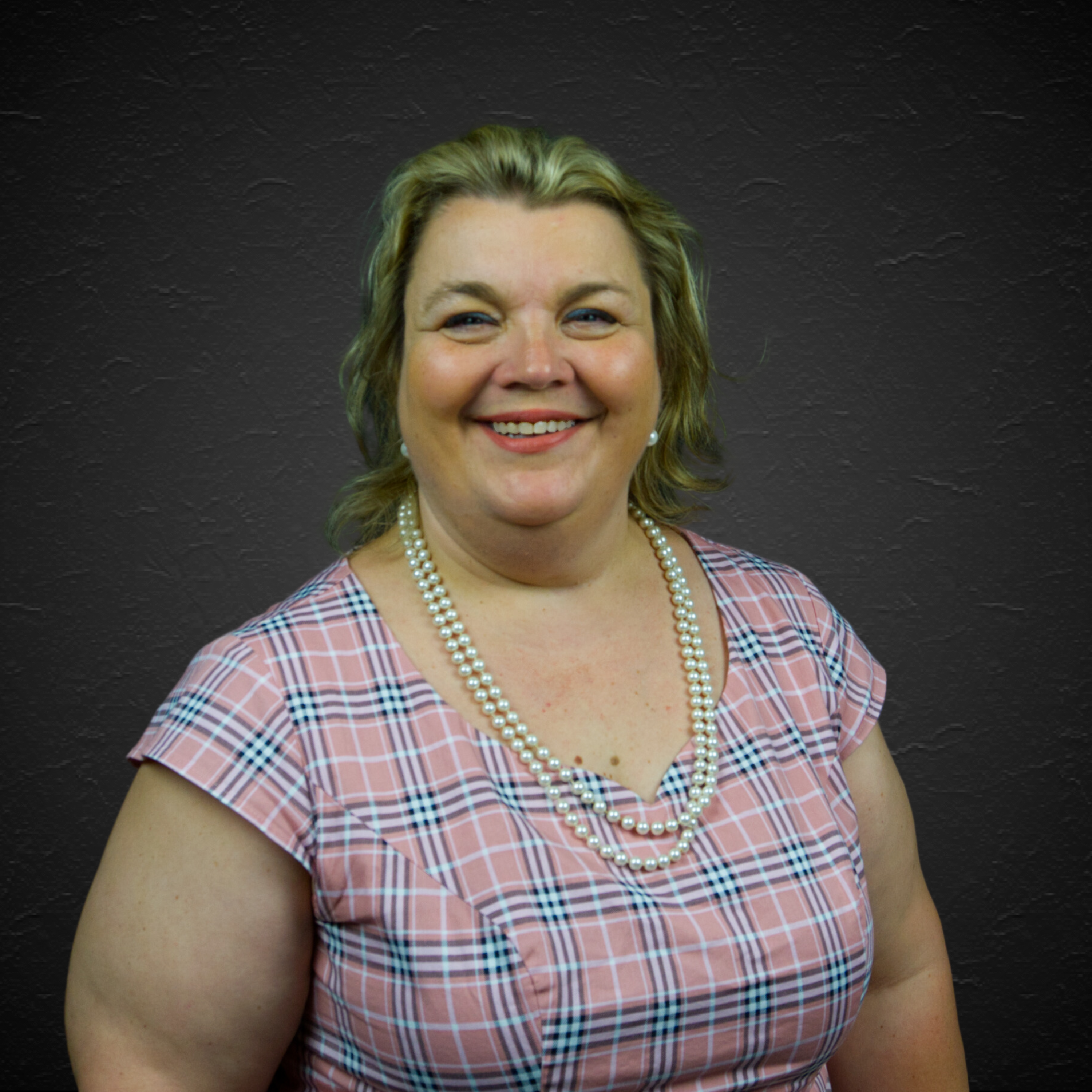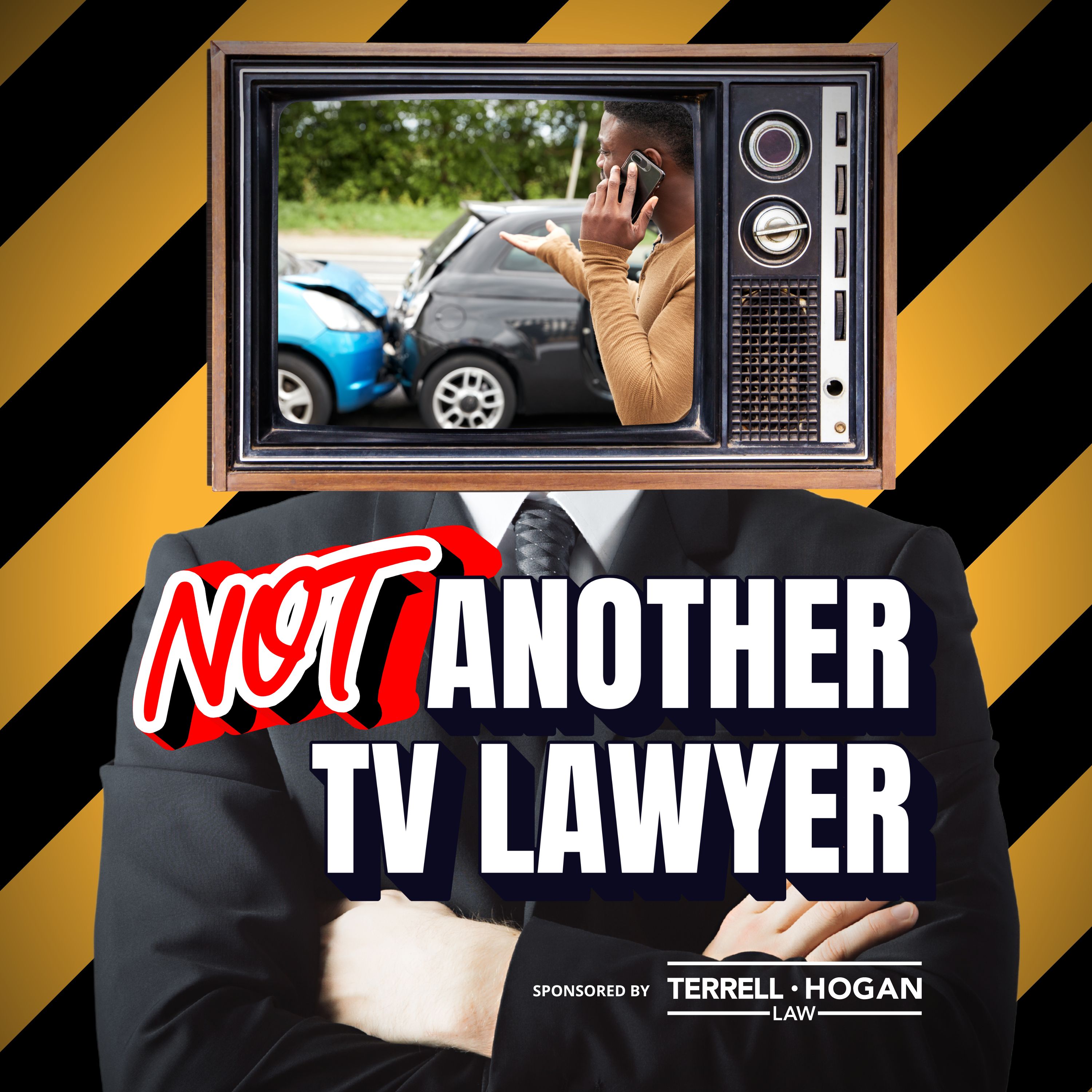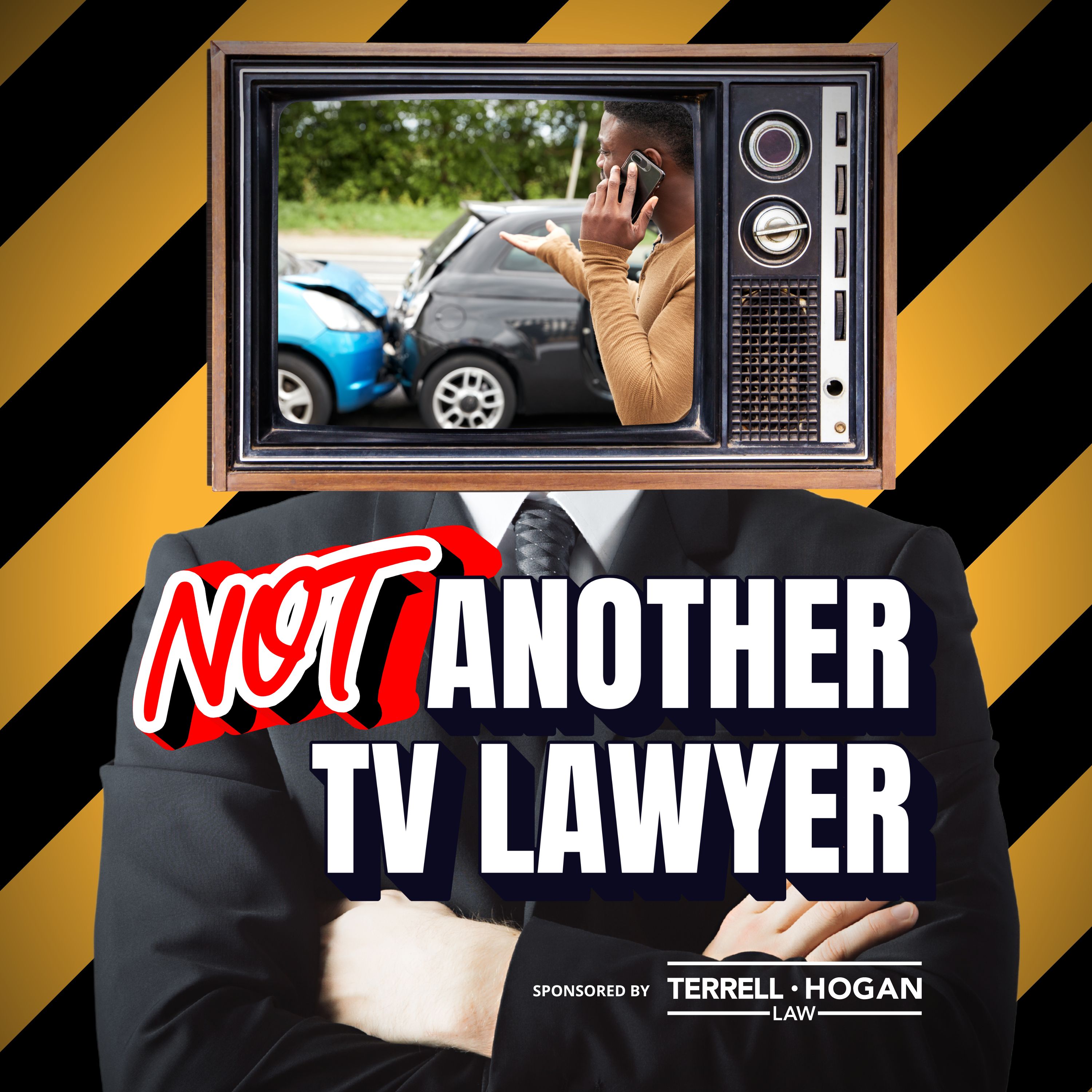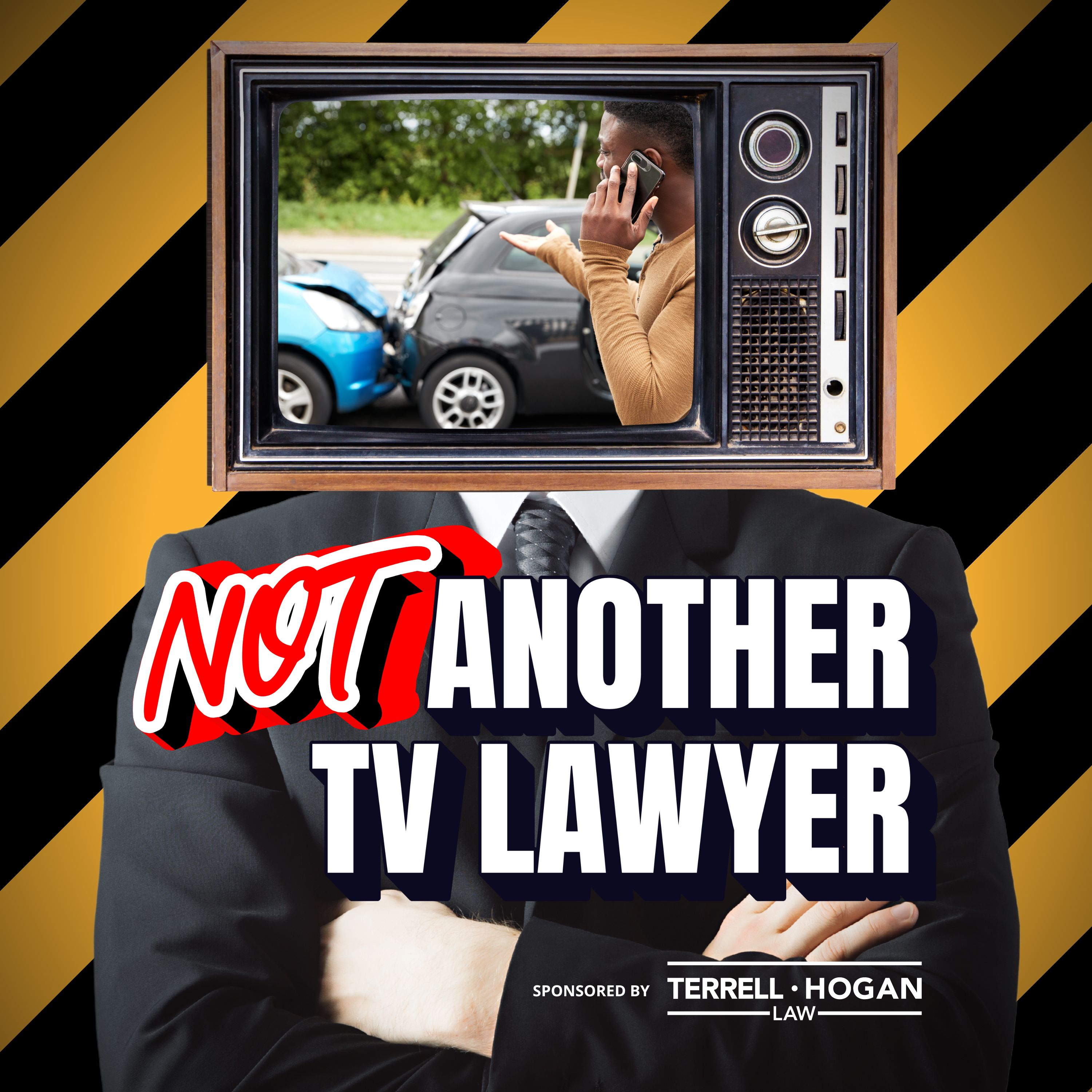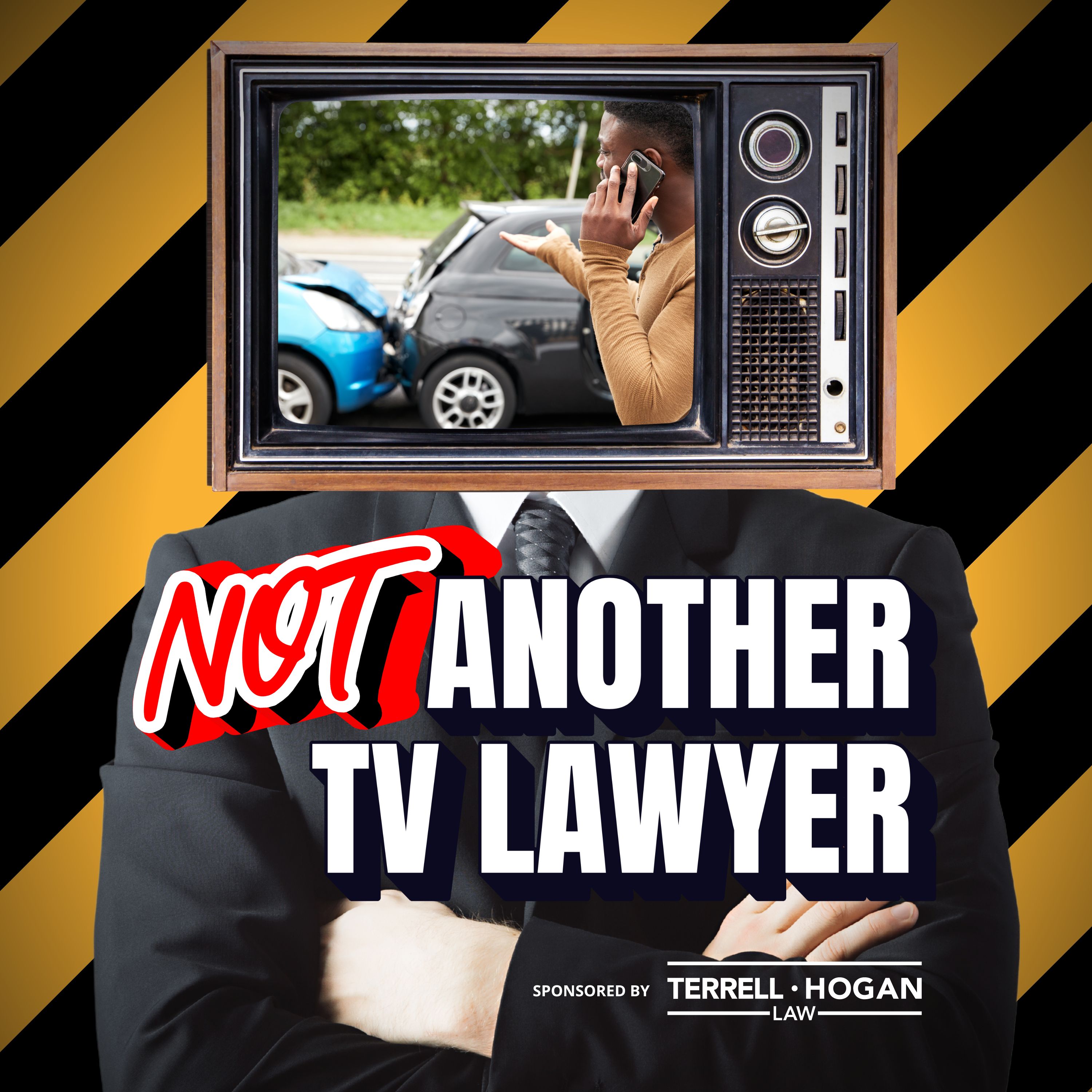Episode Transcript
Statistically, 16 percent of Florida drivers are uninsured, so there's quite a few people driving around. Did you say 16? 16 percent of Florida drivers are uninsured. It's not a law? 16 percent of the people in Florida driving cars flout the law. They don't comply with the law, but that's not the whole story.
Auto insurance is one of the things that most people have. More people own cars or have cars, drive cars, than have houses, so they're more familiar with that than homeowners insurance, which is another. Very common type of insurance people have. There are rules in auto insurance for coverage. For instance, you have to disclose all the people you live with in the home because that's an issue of what's covered and what's not covered. Welcome to Not Another TV Lawyer. I'm Chris Shaqib. I'm Jessica Hall. And this is a podcast sponsored by the law firm Terrell Hogan that's been in Jacksonville for greater than 50 years. And we are very passionate about helping people and personalizing our service to help them get the service they deserve. Car insurance will drop you for everything because that's what they did.
That's why I needed Chris. I was rightfully hit. And they noticed my name had changed and they were like, Whoa, whoa, whoa, you didn't tell us there's this other person in the house. I was like, I've been married to him. We've been in this house for four years. What do you mean? So it was almost like this loophole that insurance companies had found.
What do you think full coverage means, Sarah? I will not lie. My husband handles all of the insurance in my home. So what I thought full coverage meant was probably what everyone did. I thought that probably entails everything. Sounds kind of in the, in the word, quite frankly. Full coverage. Yeah, and full coverage is one of those things that I have heard, you know, hundreds of times from clients when I asked them, tell me what type of auto insurance you have.
Well, I have full coverage and it it's frustrating for me because there is no such thing as full coverage. It's something some Uh, companies will use to sell a certain type of policy, uh, that is the minimum. Yes, I'm also showing that it's effective advertising. Well, it is, because you're paying for what you believe is, quote unquote, full coverage.
And the question is, full coverage, everything you can have, or the statutory minimums? And more often than not, Folks who believe they have full coverage only have the statutory minimums. That's one of the things that's frustrating for me when clients come in and say they have full coverage because they think they're covered and they're not.
They're driving around, um, thinking that they have protections that are, are simply not there. And that's, that's the, that's the reason why I thought this should be the first episode. Um, because it's one of the biggest misnomers that I see in my practice, uh, people thinking that they're protected when they're not.
I'm Chris Shaqib and this is the podcast, Not Another TV Lawyer. And today are, our guest is Matt Carlucci. And we're here to talk about auto insurance, in the state of Florida. Thank you for having me. Matt Carlucci, uh, is a well known auto insurance, uh, he has an agency, um, in, in Jacksonville and I'll let him talk about that a little bit more, but beyond that, he is a member of the Jacksonville City Council and has been for a number of years.
I think. It was 1987 to 1994, 18 years when you count them up. Yeah. And 2019 to the present, he has been city council president. Uh, he has received the Claude Yates award for what? Most outstanding city council person. He was in 1992 was the one who authored the legislation that created the Jackson Bowl Ethics Commission.
He's a graduate of University of North Florida. His office is on Hendricks Avenue in San Marco. And, uh, he is not just an insurance agent, but he's a very involved person in the city of Jacksonville County, Duval, and has done a lot of things to help a lot of people. And so it's a it's a privilege to have you as our first guest.
Well, thank you. And thank you for the kind introduction. And I'm happy to do. Whatever good I can for the great city of Jacksonville. All right. What can I do to help you? So, we would like to talk about, uh, auto insurance. And the reason is, in my practice, we'll have people come in who've been involved in an auto accident.
The first thing I ask is, what kind of coverage do you have? And they They say, well, I have full coverage and that's one of my pet peeves. Uh, first of all, is there, is there, is full coverage something in florida? We, we, we were taught long ago, I'm a state farm agent. So state farm has, um, uh, many, many, many years ago said, never tell people or ask them, do you want full coverage?
Because There's really no such thing, um, and, but, but there, there is a difference between having minimum, insurance and having a nice package, that will protect your risk. And when I say risk, your car being hit, a, a driver being injured. Uh, or a driver's child. You want to make sure that when the policyholder leaves my office that I've done the best I can.
So they have a nice package, but I never tell them they have full coverage because that means so many different things to so many different people. And, I thought I had full coverage. Well, you said you didn't want the rental car coverage and you didn't want the uninsured motorist coverage. And so it's just a name that's been out there for a long time, you know, full coverage, no such thing.
No such thing. There's statutory minimum coverages that people have. If you're going to drive a car in Florida, there are statutory minimums that you have. And, uh, could you talk about what the minimum would be? The state required is PIP and that is 10, 000. PIP is Personal Injury Protection Coverage?
Yes, sir. Yeah, I'm sorry. Personal Injury Protection, PIP, and that is the no fault, coverage. Now in layman's term, when you say No, what did you just say? No fault. No fault. I think that's very important. Well, I'm going to explain that to you. Okay. Okay. So, let's just say that I'm driving down the road and I get clobbered in the back.
And I am really hurt. well, that is the other party's fault for repairing my vehicle. But for the first 10, 000 medical payments, the personal injury protection, which is the state required coverage, will pay 80 percent up to 10, 000 of a medical bill. Once you exceed that 10, 000 threshold, Then, you're in the area where you can, try to remedy, uh, your injuries or your damages with the help of your insurance company, um, your insurance agent, or an attorney.
And so, uh, so the only thing that's not at fault is that first 10, 000 medical payments. And by the way, if you are injured in a car accident, because no matter who's at fault, your own insurance pays under PIP. Okay. Right? But you have to file a claim and have some type of medical attention. within 14 days or you lose that coverage, right? Jessica is, is our expert, uh, in, in our office at that issue because that's not something that's always been around there. They changed that. It's been what, maybe 20 years now or maybe a little less than 20 years, a little less, I think. And, uh, it used to be that you just had your coverage, but now it's a certain number of days or weeks.
You have to have medical treatment within the first 14 days. If not, your, unfortunately, your personal injury protection benefits will be capped at 2, 500. And it has to be, uh, medical treatment and a doctor has to certify that you're That you have an emergency medical condition. So the 10, 000 now becomes 2, 500.
If you Because you didn't get the attention. Within the first 14 days. But you can pocket the 2, 500 is what I'm hearing. No, because if you don't have any, because, The way that it works is that, in my experience, is that the medical payments normally go, the provider submits their claim for medical payment and the payment would go to the medical provider.
It doesn't go to the insured. But if this person is not getting coverage, like if he is not going in. Then there's not any coverage to pay because he doesn't have any medical treatment. So then he's responsible for, I mean his back at that point. Yes. He's got to live with the back pain, got it. And you know, your average person has no clue that that's and that's very important.
That's very important. So every time somebody, uh, that I'm taking a claim report from and in all of my team members, we will explain if you're hurt, make sure you get medical attention. Uh, within 14 days of the data loss. So your P. I. P. Will cover that. Personal injury protection on your policy will cover it even though you weren't at fault.
This is the no fault law. Okay, so So anyway, we we try to tell everybody Get the medical attention you need if they went to the Rescue to the emergency room. That's medical attention and so forth
you know we're talking about full coverage Uh And, you know, my clients, uh, that I've talked, you know, when they come in and they've been in an accident, particularly a serious accident, um, they say, well, I want to hold the other person responsible and, you know, my, what I, how I answer that is, well, we'll see.
Right now, we don't know what the other person has to provide coverage for your injuries beyond PIP. And we don't know what you have to provide for your injuries beyond P. I. P. Could you talk about what there is beyond P. I. P. that might help cover someone for their injuries and damages in an auto accident beyond P.
I. P.? Well, I forgot one coverage that is also required, uh, besides P. I. P., and that's 10, 000 property damage. Liability. So that's the coverage you would have. If you are at fault and you needed money to repair their vehicle, 10, 000 can get swallowed up in a collision center in a nanosecond. A lot of people have heard, maybe 10, 2010, uh, or they've heard their liability spoken about in split limits, 50, 100, 25.
I have. So if, if somebody comes to my office, um, you know, I, I try to make sure they have enough coverage to at least, um, cover their, uh, fellow driver on, on, on the street, uh, but also to protect any assets they have. I think your home. I don't think you can touch the person's home if there's especially if there's kids still in the house, right?
Not the homestead. And, uh, I don't think you can touch people's 401ks or retirements, but I'm not sure about the ability to garnish those wages or those those dollars that come in. There's a limit. There's a certain amount that ahead of a household can have protected of their of their property.
monthly income that can't be, uh, nobody can go after to collect on. So if somebody comes in, they got a boat, uh, well, I'll get to that later, but they got a car and, and, uh, they, they have an at fault accident. The other person's, injured in a permanent fashion, or at least for six months of, of injury.
Uh, you want to make sure you have some liability coverage, uh, and so I always recommend if you can get at least 100, 000 per person, 300, 000 per accident, uh, that's a good start. Uh, now if you're somebody that walks in my office and, uh, I don't ask them how much money they got in the bank, but if, if, uh, they got a million dollar home and they're driving a, Mercedes, Lexus, or a high value vehicle, it doesn't take me long to figure out they, they probably have some assets they want to protect.
if They injure somebody and they're at fault in that accident. So in that case, uh, I would recommend 250, 000 each person. So that means if you injure just one person in an accident, you're covered up to 250, 000. But if you injure, uh, two people, The aggregate would be 500, 000?
Yeah, that's, uh, aggregate would, would be, uh, 500, 000. Uh, no more than 250, 000 per person. And so, so that's kind of the underlying limit that's required in order to get an umbrella. So what people ask all the time, well, what's an umbrella? And an umbrella is excess liability. Uh, that kind of umbrellas, your autos, your home, your boat, whatever that you need insured.
It doesn't cover property, uh, it has nothing to do with, with your boat, covering your boat or your car. But what it has to do with is if you are at, at fault in an accident and you get, papers from an attorney. and they're trying to collect to remedy their, client's , injury, then I feel a lot better than if I just had 10, 000.
Because, they would have at least 1, 250, 000 coverage if they injure somebody. Because the umbrella's a million dollars liability. And the million dollar liability also covers over the home. And your boat. Uh, it's, it's, uh, it's a good way to protect your assets if you have assets that you need to protect.
So it also sounds like you kind of personalize your plans. It's not like you come in and you buy a packet and there's just, hey, it's a one shoe kind of fits all. It sounds like you kind of take the time to tailor your insurance plans towards your budget. Insurance. Exactly. Thank you. I want to manage that particular customer's risk with whatever coverage that they can afford.
Um, you know, I, I can tell them they need an umbrella, you need this, you need that. Uh, but you know, I, I deal and work with a lot of people like every agent in Jacksonville and in Florida. A lot of people are finding auto rates are going up. Right. And so it's tough for them to perhaps afford 250, 000 coverage.
But if they are making a decent income, something that would be like middle class. I want to make sure that they got at least 100, 000 each person, 300, 000 each accident. And by the way, go ahead and get a hundred thousand on the property damage, not the 10, because if you cream a Mercedes in the back and the bill comes to 75, 000, you will be much better protected.
That's a good point. And it's important that people talk to people like Mr. Carlucci, because if people are injured and they come to Terrell Hogan, they get people like me and I'm going to search every rock and find out where all the assets are. And if I find out you have all of these things, we will do everything in our power to recover as much money for our clients as possible.
That's awesome. So if we're always looking to make sure because I will review the insurance policies and see what they have. And I searched public records and I search anything I need to search to find out what I need to find out. And if I find out you have like three houses, but only one of them's homesteaded, we and you've got assets, then we're going to have a much different conversation.
So let me flip it a little bit here and talk about uninsured motorist, because if I'm sitting at a red light, mind my own business, and I get creamed in the back, and now I can't go to work for maybe six months to seven months to, to maybe forever, depending on how badly I'm hurt. Uh, then, uh, and in the, in the, in the driver that hits me has no insurance or just has the minimum insurance, uh, PIP and the 10, 000 property damage.
You can't squeeze, I can't squeeze blood out of a turnip and you can have the best attorney in the world and they can't squeeze blood out of it, out of a turnip. And in my experience, more people don't realize. how underinsured they are until something bad happens. I think that's my takeaway from this.
One of my closest friends, is a triathlete. And so he's training in Georgia in the mountains on his bike. And, someone just pulled out of their driveway in this mountain uh, creamed him on his bike and He had to be life flighted to Atlanta and he was in the hospital there for a long time and ended up in brooks rehab hospital and and sometimes rehab, you're only covered up to a certain amount of money on your health insurance.
If that has to kick in above your P. I. P. Coverage. So it's, it's important. To me to make sure that my policy holder has adequate uninsured motors because if they can't go to work, then they lose wages, right? Um, particularly if they don't have, disability insurance. And this friend of mine who, you know, is very well educated as an MBA from one of the best universities in the country.
He was an executive. He was woefully underinsured and I got involved in just said, look, I'm not going to charge you, but I'm going to, I'm gonna handle your case. There was coverage, uh, you know, that applied, but because Georgia mandates, I believe bodily injury coverage, we were able to get something. But had it been in florida, it would have been a bigger disaster for this friend of mine.
He immediately changed his insurance after that. He learned, unfortunately, the hard way. But it's if someone as sophisticated as he is, didn't understand that. That's why, you know, that's why this was the subject I wanted to talk about first on our podcast, because it's, it's folks don't realize how at risk they are driving on the roads of Florida.
So what is important is to have, um, an insurance company, uh, and an insurance agent. that you can have at least a good conversation nowadays. So much of is done over email. My office is still kind of mom and pop. They come and see me and I have a big screen that show them what the different prices would be.
So that's, that's having a good agent is a good thing. You're my agent and your agency operates like my law firm, Terrell Hogan, where we're The reason our podcast is not another TV lawyer is we're kind of old fashioned. People talk to us. They come to our office. We actually return phone calls and things like that.
And, and I feel that's the way your office is when it comes to insurance. We do our best. I'll tell you that, uh, we can't control our rates in, in we've had a number of rate increases just like every insurance company have, I haven't lost much business cause even though our rates go up. People check around and I, I encourage them.
Look, check around. And even if you, if you got to find something less, I'll help you with the transition. And then if you make the switch and that company leaves your front doorstep dirty, we'll roll the red carpet out for you back here at state farm at the Carlucci agency. So, um, but I, I really, uh, have to struggle between making sure people are are covered.
Well, But at a price they can afford, they can't afford it. They drop their insurance down to bare minimum. They're not protected and they're not protected. Florida is is really for all types of insurance. Wouldn't it's one of the more expensive states. Is that correct? Yes sir. We are certainly with homeowners, especially nowadays, everything.
Um, but you know, everybody Mostly everybody has to drive. We don't have a, uh, public transit system. That's, you know, very reliable here. And so we drive in this largest spread at most spread out city in the country. And so auto insurance ends up being really, really important. Um, so I had another, uh, question.
Another thing I wanted to talk about. We've you mentioned umbrella coverage before. And, uh, you know, long time ago, my when my older kids were young, we had this babysitter. She was wonderful young lady in her twenties, early twenties, went to U. N. F. Um, and she loved my kids, and she was the babysitter we used all the time.
She was just one of the most delightful young ladies. And She was in a terrible accident, not her fault. A guy driving a truck ran a red light, he was drunk, had prior DUIs, and she was injured very badly. Ended up in UF Health with a head injury. A permanent head injury that affected her life forever. And the quality of her life.
Going forward, she was at Brooks Rehab. on the head injury floor for many years. And, um, that that person wasn't even insured. Wasn't I don't think he even had a license. Uh, at the time he wasn't supposed to be driving. And so there was no nobody to sue on the liability and there's no bodily injury coverage that would have applied to him.
You know, and uh, but her she lived with her parents. And her parents had an umbrella policy. Okay. And she was able to get a, you know, a seven figure recovery from her parents umbrella policy. Did, did she have unassured motorist on that umbrella? It yes, that she had parents who were very sophisticated and fortunately for her.
She was able to get a recovery coverage that, you know, most people would not have been able to get. I mean, right. Parents were very, they were smart. And, you know, they were definitely well to do and they, they probably had an agent like you well, you might have been there. Well, it most I find that most agents really want to do a good job for their customers.
And we all. have to, in these days, uh, get people the best coverage, the most coverage we, can, share with them, provide for them at a price that they can afford. Right. And, um, and it's always, now there are some people that come in and, um, they are, uh, quite wealthy. And so, We put on the liability and we, uh, encourage the, uh, um, umbrella, which covers for liability if they were at fault and injured somebody, but they also will put on an uninsured motorist benefit, so if they get hit by somebody with no insurance, like your babysitter did, then luckily she could collect under the uninsured motorist that, uh, her auto policy had or her parents auto policy had in the umbrella.
Right, I mean if, I'd say 99. 9 percent of the clients I see would not have been in that situation. That is, uh, and, but for that, I don't know what her life would have been like, it would have. Well, and there's one other thing about, you know, buying liability insurance to protect yourself. Uh, there's another thing to think about.
Um, and, It's your fellow man, your fellow woman. I'm not sure what the saying is for that anymore, but, but we owe our fellow man, Humankind. , humankind, if, if we injure them, um, to have at least enough liability to help that person get back on their feet. Yes. And, and I think that's a part of, of, of insurance that people don't think about.
I, we, you know, I'm a member of the Florida Justice Association have been for years and we've lobbied for as long as I've been a lawyer. For mandatory bodily injury coverage, and it never passes, but we keep trying every year. State Farm wants mandatory, they want to get out of the PIP no fault thing, I think mandatory PI is a better plan than PIP.
It, it absolutely is. But, um, the legislature, Never does. Uh, never goes that way. So if our, if our listeners, um, want to contact you and have you review their insurance coverage, how would they get ahold of you? Uh, just, I guess, go to Matt Carlucci State Farm on your, on your Google. Uh, they can call me at my number, which is 904 399 5544,
or they can email me. At Matt, at mattcarlucci. com, uh, and, uh, and I'm, I'm happy to review, uh, people's insurance anytime they want to, uh, and, and actually I, I have a, a great team at my office and so they do a lot of sale for me. And, uh, what I try to do is be the risk manager. And, and tell people what the big story is and what, what coverages they truly need and then I, I'll have my team member come back and work up the, the premium.
Well, that has been my experience with your office. I have my homeowners there too. And, uh, you know, we bought a house a couple years ago. We moved from the San Marco area near your office to Deerwood. And, uh, the, the market for homeowners, which we had to get, uh, has really, uh, It's more difficult than it ever was.
The things they made us do, they, they made us put a, uh, a new water heater in our house. We were selling, they made the people who were selling us the house, put a new roof on the house before we could get any coverage. It's a, it's a different world. Homeowners insurance is a complete another podcast.
It is a complete different. It's a completely separate episode. So. We thank you for being our guest and we will include your contact information in the description of our YouTube channel as well and our podcast. And if anyone has questions about their insurance policy or would like to discuss it with you, you're more than happy to talk to them.
Yes, I am. And, uh, I hope I was able to share something of value with y'all today. Matt, we really appreciate you being our very first guest. Oh, boy. On Not Another TV Lawyer. We appreciate having you. Well, thank you very much. And thank you for your business. Always, always. Uh, well, again, I like to go to, uh, businesses that are like my law firm, Terrell Hogan, where people actually matter and they return calls and they kind of do things the old fashioned way.
Thanks again for listening to Not Another TV Lawyer. We hope that you will tune in to the next episode. Not Another TV Lawyer is sponsored by my law firm, Terrell Hogan Law. Terrell Hogan represents people in a lot of different areas of injury type law, as well as business claims throughout the state of Florida.
We represent people in auto accidents, trip and falls, people who have been exposed to asbestos and developed conditions related to that. Victims of medical negligence, victims of defective products, including medical devices and pharmaceuticals. Please feel free to look us up at www. terrelhogan. com. We look forward to hearing and being with you soon.
